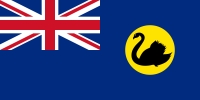The final result may not be known until later this week, but the result of the Western Australian election on Saturday has rebuffed the incumbent government.
 |
| Western Australia voters were unimpressed with the dramatic anti-uranium policies of Alan Carpenter |
Any ban on uranium, whether via new legislation or just continuing the political stigma, now appears untenable after the central position Carpenter gave the ban and the comprehensive rejection of it by the electorate.
The Australian Uranium Association had pointed to the considerable sovereign risk threat introduced for a resource-based economy by Carpenter's announced intention to legislate against uranium mining if he was returned. This would wipe hundreds of million from the value of corporate assets without any offer of compensation.
Swings of more than 6% against the government in many seats exceeded poll predictions of a 4% move to the opposition. Labor was seen to have run an overly negative campaign and also to have been very cynical in calling the election six months early, immediately following a change in opposition leadership.
Western Australia is the most conservative state in the nation, yet Carpenter positioned Labor further to the Left than his Labor party is at a federal level in order to curry favour with the greens. The outcome is said to be unique in the state's political history, with neither major party winning the 30 seats needed to govern in their own right.
The Liberal Party leader Colin Barnett made it clear during the campaign that he would free up uranium mining in the state. He may form a coalition government with the National party or enter a less formal arrangement, but three independents will have the balance of power. No seats appear to be won by Greens in the lower house though they got 11% of the primary votes.






_15863.jpg)







